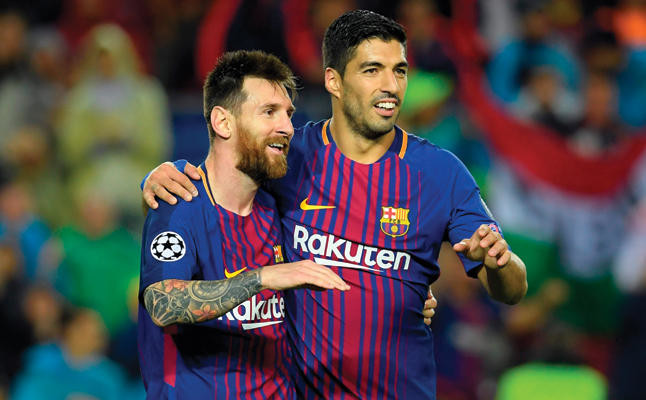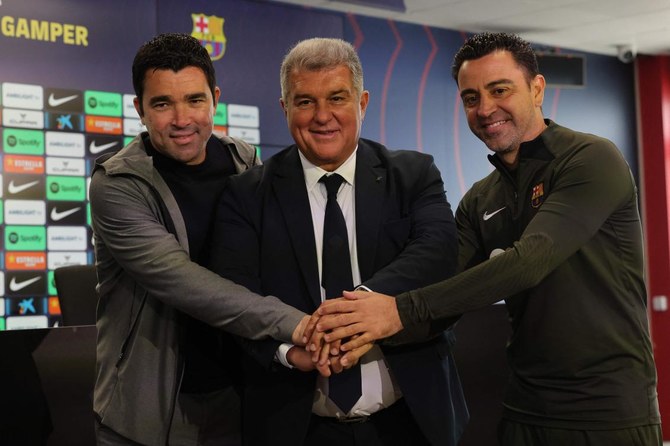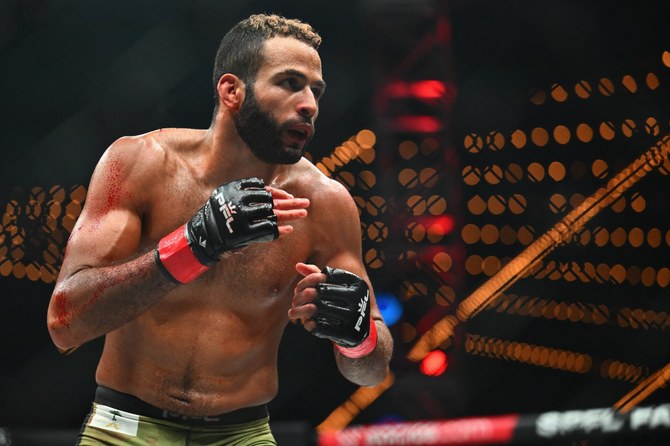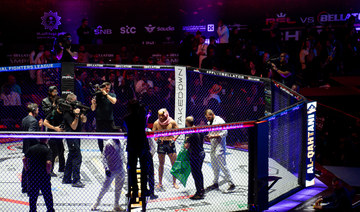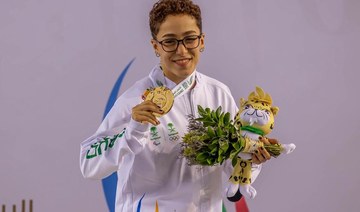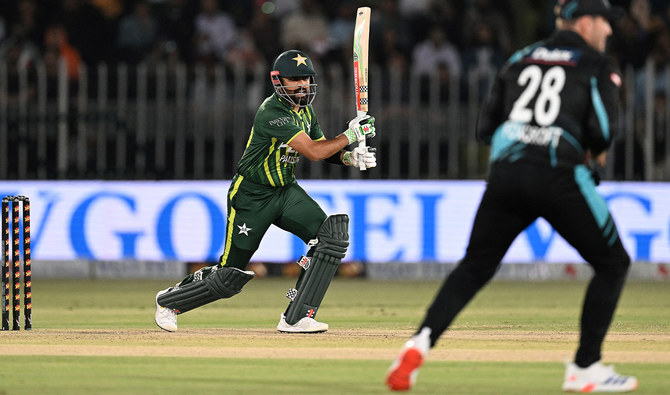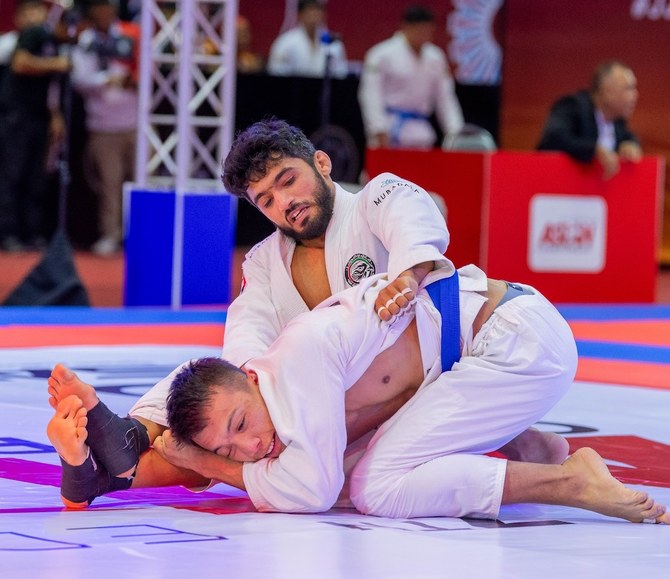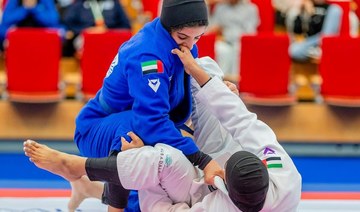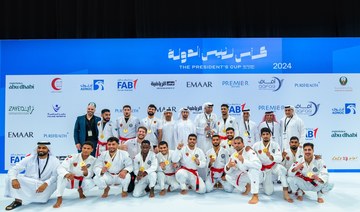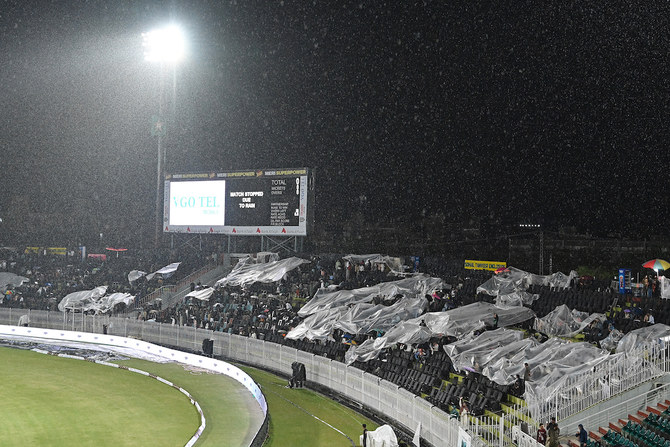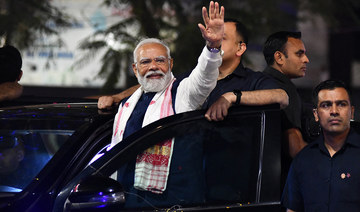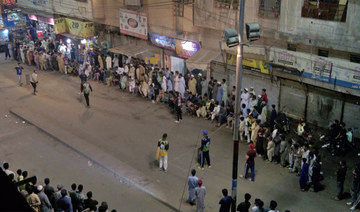BARCELONA: ‘Sport and politics don’t mix’ is a well-worn mantra of many an armchair pundit, but try telling that to fans of FC Barcelona.
While the club is known the world over for winning Champions League and La Liga titles galore and, thanks to talents such as Lionel Messi, Michael Laudrup, Ronaldinho and Xavi, playing some of the best football seen over the past 30 years, it is the perception that the club is a Catalan institution that really marks it out as different.
That means when it comes to recent violent clashes and the growing movement for Catalan independence, sport and politics most definitely mix for FC Barcelona. And that could have huge implications for the club, both on and off the pitch.
The political ructions, the worst since democracy returned to Spain in 1978, could spook sponsors and lead to the expulsion of Barca, as it is popularly known, from Spanish and European football should Catalonia gain independence.
Bother for Barca’s brand
The club’s global fan base is rivalled only by Real Madrid and Manchester United, and so while Spain suffered a catastrophic economic crash Barca’s revenue jumped from €473 million ($557 million) in 2010-11 to a record €708 million in 2016-17. Of last season’s income, €264 million came from commercial activities, €178 million from media rights and €175 million euros from the 99,350-capacity Nou Camp.
Yet those steady income streams — and Barca’s target of generating annual revenue of €1 billion by 2021 — may be jeopardized by Catalonia’s political convulsions.
“In marketing, there’s something called negative brand rub-off. If the Catalans are perceived as being troublemakers, commercial partners might also be seen as troublemakers by consumers,” said Simon Chadwick, professor of Sports Enterprise at Britain’s University of Salford.
Barcelona’s online presence reflects the internationalization of its brand; its website is available in 10 languages, including Arabic and Japanese, and the club’s Facebook, Twitter and Instagram feeds have nearly 200 million followers combined.
The prospect of brand contamination will likely trouble potential patrons from Asia, which has provided all Barca’s commercial shirt sponsors.
“The Chinese are concerned about what’s happening in Catalonia, because what the Catalans are trying to do is the antithesis of everything China stands for,” Chadwick said.
“China is all about centralized control, compliance and conformity. China doesn’t want its companies and commercial organizations associating with a club synonymous with non-conformity and dissent. Potential sponsors in other markets will likely be worried too.”
The club and Catalan culture
Yet Barca’s history prevents it remaining aloof to Catalonia’s political crisis. Founded in 1899 as Catalan nationalism re-emerged in the late 19th century, Barca became an expression of local pride. The Catalan flag and cross of St. Jordi, the region’s patron saint, were added to the club’s badge in 1910, while in 1917 Catalan became its official language.
Following General Franco’s victory in Spain’s civil war in 1939, the triumphant fascists banned public use of the Catalan language and repressed Catalonia’s political, cultural and economic institutions and all expressions of Catalan identity.
FC Barcelona was not exempt from this purge. Catalonia’s flag was removed from the club’s badge, its name was changed, and the dictatorship, which ruled until 1975, appointed its club presidents.
Yet Franco’s repression strengthened Catalan identity and amplified FC Barcelona’s role in that.
“As Catalans had no political parties, no regional government, and no right to use their own language, they threw their cultural pride into Barça. At a Barca match, people could shout in Catalan and sing traditional songs when they could do it nowhere else,” former player and coach Carles Rexach said in 1984.
As Franco’s health ailed, his grip on Spain loosened and in 1968 the incoming FC Barcelona president said words that became a mantra “Barca es mes que un club” – Barca is more than a club, a phrase now emblazoned on the Nou Camp’s seats.
Catalan nationalists began repoliticizing Barca and the Catalan language was again heard over the stadium speakers.
Joan Laporta’s reign as club president from 2003 to 2010 brought Catalanisme again to the fore. According to a 2006 study, 53 percent of Catalans associate Barca with the idea of Catalonia, versus 38 percent who associate it with either the city of Barcelona or a football team.
On referendum day, Barca played its home match against Las Palmas behind closed doors to protest military police violence against voters. The club acted after league officials refused a postponement — Barcelona would have forfeited the three points and incurred a further three-point penalty if the game had not gone ahead.
Some media questioned whether playing the game belied the promise to be mes que un club, but Barca face a delicate balancing act of remaining true its commitment to support Catalanisme without jeopardizing its footballing privileges.
“FC Barcelona … will support the will of the majority of Catalan people, and will do so in a civil, peaceful and democratic way,” Barca said in a statement detailing its support of Catalanisme and the right of Catalans to hold an independence referendum. The club declined to answer questions from Arab News.
“FC Barcelona has never supported the ‘yes’ or ‘no’ vote in the referendum as it has a diversity of opinions from its 143,855 members.”
Which way for Barca?
Should Catalonia secede and its clubs join a Catalan league, the fledgling competition would prove little more than a procession for Barcelona; city rivals RCD Espanyol are Catalonia’s second club, but have never finished higher than third in Liga and have a salary budget barely one-tenth of Barca’s. Girona are playing their debut top-flight season, while Reus and Tarragona are in the second division and several Catalan clubs compete in the regional, 80-team third tier.
Catalonia is not a UEFA member, so switching to a Catalan league would seemingly exclude Barca from the Champions League, leaving it facing a huge slump in commercial and broadcasting revenue. UEFA declined to comment.
There are examples of football clubs playing in foreign leagues, most notably reigning French champions Monaco. Yet attempts to create multi-country leagues have failed to materialize under various guises, and Spain’s punitive response to Catalonia’s separatist aspirations suggest Barcelona would find it difficult to remain in La Liga.
The league’s president, the bellicose Javier Tebas, has long threatened to expel Catalan clubs should the region gain independence. La Liga declined to comment, instead referring Arab News to recent quotes by Tebas that struck a more conciliatory tone.
“We’ll see what’s going to happen with the declaration of independence. If it goes through I will automatically call for a meeting with all Catalan clubs in La Liga,” Tebas said. “I think there won’t be any immediate exit. If the clubs support independence they will be out of the national competitions.”
Tebas’s quotes imply Barcelona would not necessarily be excluded, and fans watching Wednesday’s 3-1 Champions League victory over Greece’s Olympiakos seemed confident realpolitik would ensure their club’s football activities are unimpaired.
“I don’t think it will affect Barca. La Liga wouldn’t like to lose us and it’ll be the same for the Champions League,” Barcelona-born Javier, 44, told Arab News during half-time at the Nou Camp.
“I’d like the club to publicly support independence, but I understand that they can’t.”
Fan dilemma
Those views were echoed by other supporters. Mario, 46, a socio — or club member — since 1983, described the club as his only love.
“Barcelona comes first, independence second. Barcelona is the essence of Catalonia. I’d like us to stay in the Spanish league after independence,” he said. “Barcelona must support what the people of Catalonia want.”
As the 18th minute approached, fans in Barcelona’s pitch-side singing section unveiled a banner declaring in English “Freedom for Catalonia.” The familiar chants of “independence” and “freedom” reverberated around a rain-soaked and otherwise subdued Nou Camp to coincide with 17 minutes 14 seconds – or 1714, the year Catalonia fell to Spanish forces.
Among the sodden ultras, Catalonia’s independence flag, the Estelada, was prominent, along with the pro-independence “si” flags of the referendum. In another stand, a banner stated “Catalonia is not Spain”, written in English, presumably with television audiences in mind.
Barca, which joined a Catalonia general strike on Oct. 3, refused to speculate on whether it would remain in La Liga should the region become independent.
“If the situation materialized, then the Board of Directors would have to consider the opinion of members,” its statement said. “The club is not planning for any other scenario than playing in the Spanish league.”
The club believes it cannot be expelled should Catalonia’s government make a unilateral declaration of independence. Barca also highlighted its importance to the league, claiming it provided 30 percent of its audience.
“Any league, including La Liga, would want to have a club like FC Barcelona in its competition,” it added.
Uncertainty over Catalonia’s future comes at a troubling time for Barca; over the summer it unwillingly sold Neymar, Messi’s heir apparent, while coach Luis Enrique also departed following a disappointing La Liga campaign and a limp surrender to Italy’s Juventus in the Champions League quarterfinals.
Homegrown stalwarts such as Sergio Busquets and Andres Iniesta appear to be waning, while recent transfer activity including the over-priced purchases of Paulinho and Ousmane Dembélé indicate the absence of a broader recruitment strategy and a steady erosion of the footballing values for which Barça are synonymous.
Five-time Ballon d’Or winner Messi has yet to extend his contract, which expires next summer, and the Argentine’s reluctance to commit hints at disquiet; yet unknown is the impact of Catalonia’s uncertainty on its players.
“In terms of what’s happened in Catalonia over the last month, how does that affect the Barcelona brand? ”added Salford’s Chadwick. “This is a profound commercial issue for Barcelona. It seems to be something the club and the fans have not yet addressed.”


